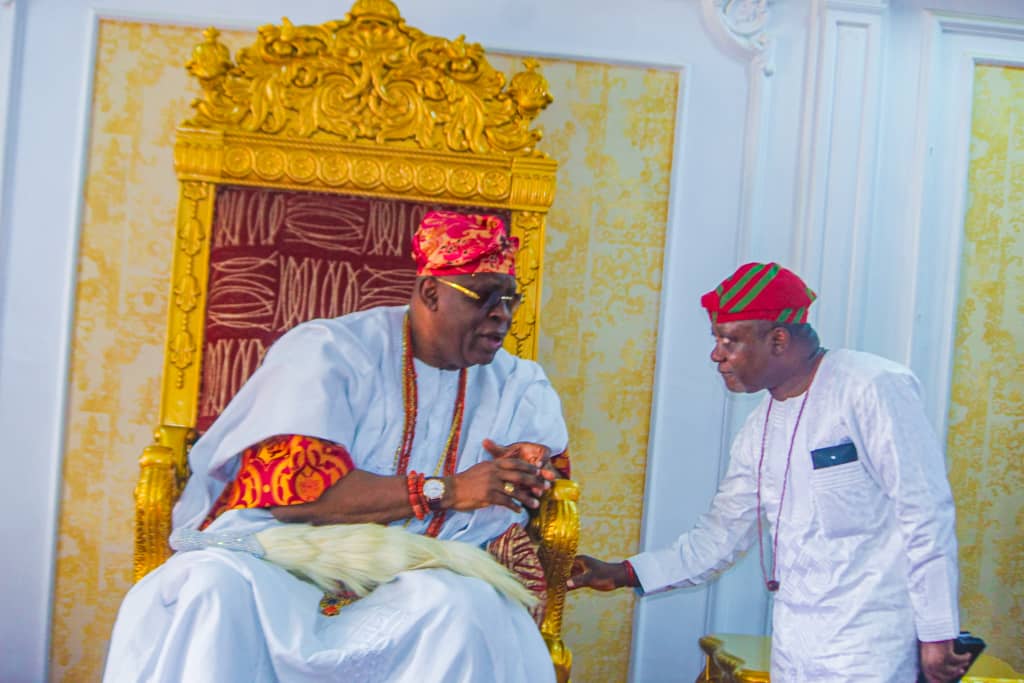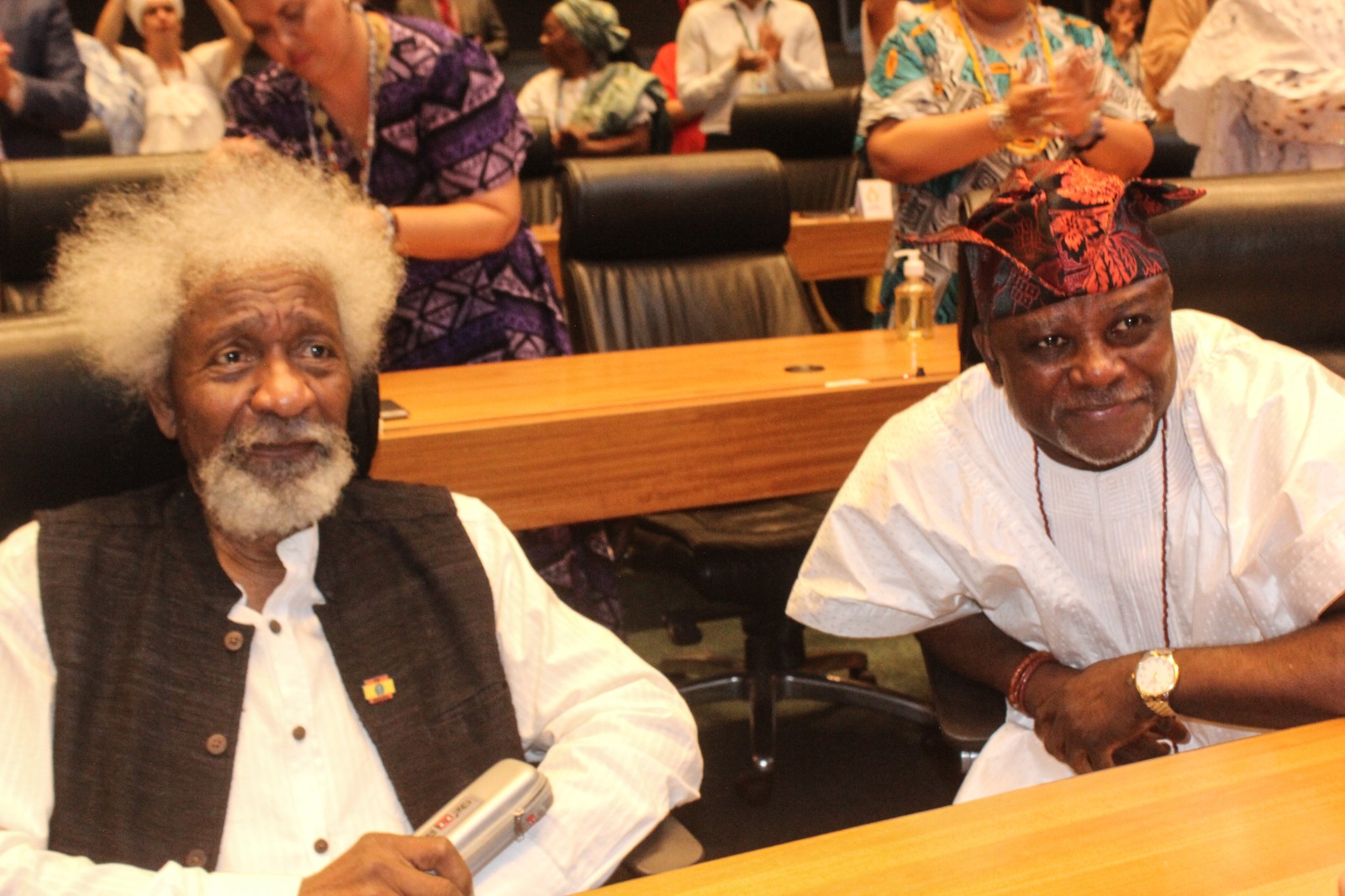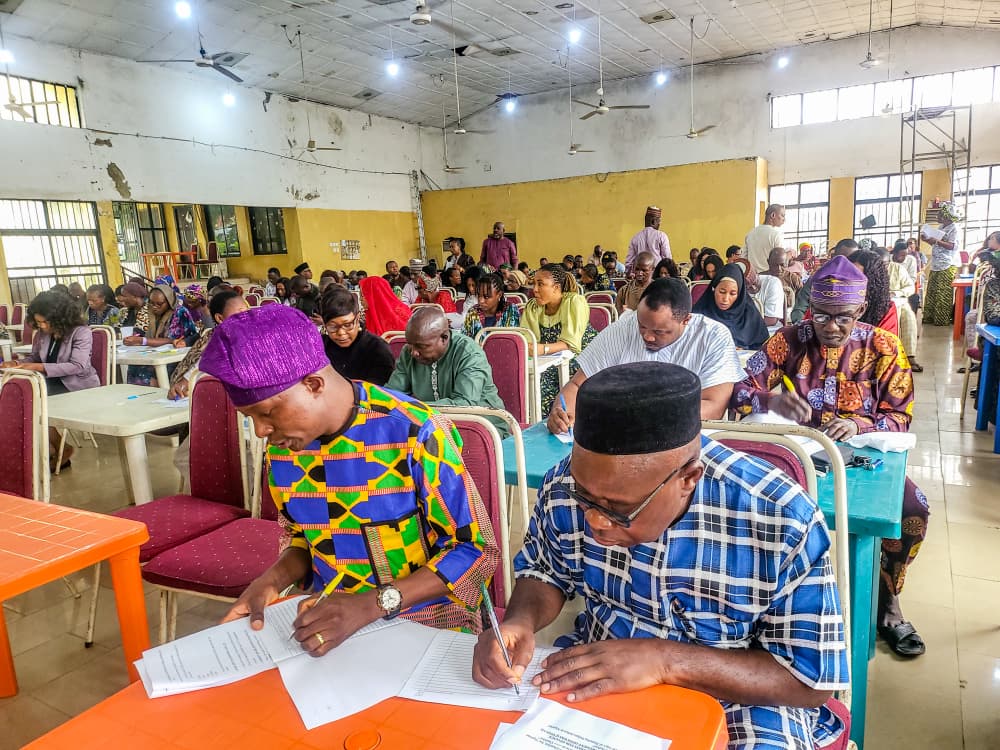The Director, United Nations Educational, Scientific and Cultural Organization (UNESCO) Regional Office, Abuja, Mr. Benoit Sossou has reiterated that UNESCO will continue to give assistance to the National Institute for Cultural Orientation (NICO) and work together towards mobilizing additional funds to implement some of the Institute’s key programmes.
Disclosing this in his office in Abuja, when the Executive Secretary of NICO, Dr. Barclays Foubiri Ayakoroma led a team on a courtesy visit, Sossou said although UNESCO is not a fund organization, its collaboration with NICO will give the Institute a good testimony that will help in mobilizing additional funds from other donor partners.
According to him, in spite of UNESCO’s new fund-raising approach, the Regional Office will be ready to, apart from the seed money ministries of UNESCO competency will access, also assist to get more money for the implementation of their programmes.
Also speaking, the Head of the Culture Section, UNESCO Abuja Regional Office, Mrs. Adele Nibona expressed satisfaction over NICO’s activities, especially those in line with what UNESCO is doing, saying, “I have heard that you are very active with the Safeguarding of Intangible Cultural Heritage in Nigeria and this is our priority because intangible heritage contributes to the development of a country.”
Disclosing UNESCO’s line of priority programmes for implementation in Nigeria, Nibona said they include encouragement and support for the implementation of cultural conventions, encouraging establishment of more World Cultural Heritage Sites, reporting and building capacities on cultural diversity, establishing strategies to pool human resources for Underwater Cultural Heritage, as well as encouraging the culture of peace.
Her words: “Our plan is to see how we can continue to support Nigeria for the culture of peace and tolerance in all the six geo-political zones, so that we can have the establishment of peace in the country and so have development in this country. UNESCO is not a fund, but we have regular programme funds, which are very small; but we work with the donors on how we can complement the regular programme funds and then implement them. That is why your support is crucial, so that we can together develop project proposals and get some potential donors and together, preserve our intangible cultural heritage.”
Earlier in his address, the ES, NICO, Dr. Barclays Foubiri Ayakoroma reiterated that NICO is a product of UNESCO’s declaration of the World Decade for Cultural Development (1988-1997), where the centrality of culture in national development was emphasized; and since it midwifed NICO, it was only natural to relate with UNESCO.
“NICO as an Institute has benefitted from UNESCO, beginning from its establishment, as it gave the Federal Government a take-off grant to ensure the Institute was put in place and thereafter, ensure that it remains UNESCO’s focal agency for the Intangible Cultural Heritage of humanity. We attend Intangible Cultural Heritage programmes wherever they are organized; just as NICO is always invited to attend the meetings of the Intergovernmental Committee amd the UNESCO General Assembly”.
“We have also benefitted from UNESCO in the organization of a national seminar on ‘Culture and Education for Peace’ and we believe after now, we will still call for a more interactive session. UNESCO also partnered NICO in the holding of the National Conference on ‘Culture, Peace and National Security.’”
He further expressed optimism that baring funding challenges, the Institute will this year, look at various platforms to further sensitize Nigerians on the imperative of culture in national development, including the ‘National Conference on Culture, Peace and National Security for Traditional Rulers,’ a tentative programme, titled, ‘Talking Cultural Diplomacy’ aimed at sensitizing diplomats and top government functionaries to know the place of cultural diplomacy in national development, the ‘Quarterly Public Lecture Series.’ which is in line with the Institute’s mandate of enhancing capacity building in the culture sector.
On the entourage of the ES, were the Director of Research and Documentation, Prince Bamidele Olusa, Director, Orientation and Cultural Affairs, Mr. Alex Omijie, Dep. Director/Special Asst. to ES, Mr. Law Ikay Ezeh, Asst. Director, Research and Documentation, Mrs. Chioma Duru, as well as Miss Fatima Jafaru (Prin. Cultural Officer), and Mr. Caleb Nor (Media Assst. to ES).
Caleb Nor
Corporate Affairs Unit
NICO, Abuja


